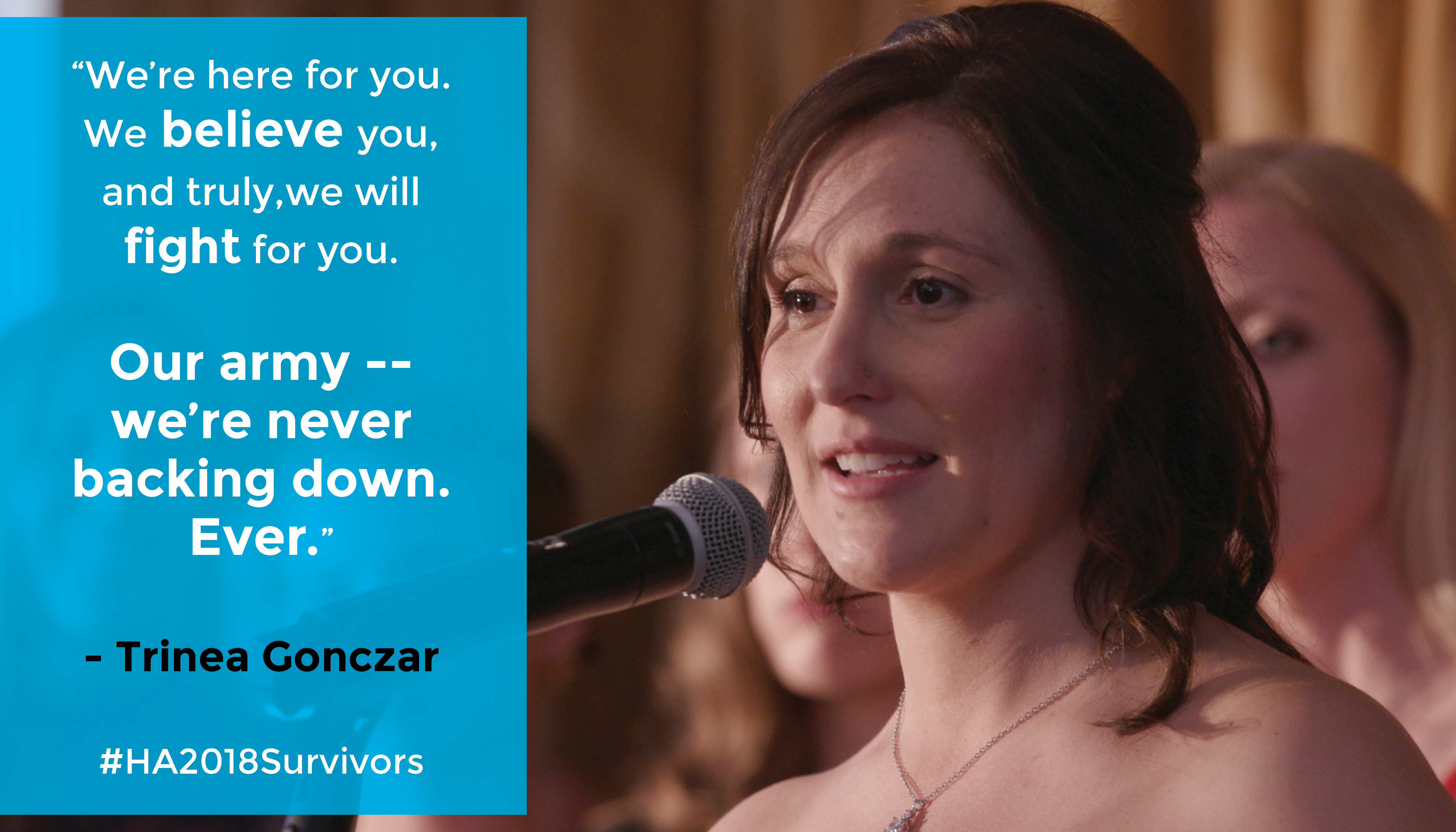Today marks the closing of an encumbered battle between Michigan State University and the Sister Survivors who endured abuse from Larry Nassar. After months of litigation and mediation, MSU has agreed to a settlement of $500 million. In total, 332 claimants came forward.
Many of the survivors know this is simply the beginning of the change they want to see.
On April 28 we honored these Sister Survivors with our 2018 Humanitarian Award. Sixteen women attended the event to receive the award on behalf their Sister Survivors. We also honored a group of gymnasts who have come forward about abuse committed in the 70s and 80s by their coach, Doug Boger.
GSD recognized these women for their determination to transform sport and its culture of abuse. Not only have the survivors of abuse taken the enormously difficult step of publicly sharing some of their most difficult experiences, but they continue to fight on a daily basis to make change. The Sister Survivors fight in courtrooms, at rallies and events, and on social media. They want the world to hear their story, but more importantly they want other survivors to know they are not alone.
The survivors are making progress. In February of 2018, President Trump signed into law the “Protecting Young Victims from Sexual Abuse and Safe Sport Authorization Act of 2017.” The passage of this vital legislation was bolstered by over 100,000 signatures on a petition started by Champion Women during the time the survivors were sharing their victim impact statements at Nassar’s sentence hearing. Champion Women is an organization founded by Nancy Hogshead-Makar, who has long been an advocate for victims of abuse and sexual violence, particularly in the sports world.
While the settlement with MSU indicates the university and its board are acknowledging some accountability, it comes after MSU repeatedly tried to undermine the survivors and their attempts at reform within the university and sport. This was just one example of the resistance the survivors face as they move forward to implement real change.
Some of that change is included in a legislative package supported by the survivors and lawmakers in Michigan. The package includes measures that would extend the statute of limitations and add college employees, youth sports coaches, trainers, and volunteers to the list of mandatory reporters.
Trinea Gonczar, a Sister Survivor and recipient of our Humanitarian Award, said in her message to other survivors of abuse: “We’re here for you. We believe you, and truly, we will fight for you. Our army – we’re never backing down. Ever.”



